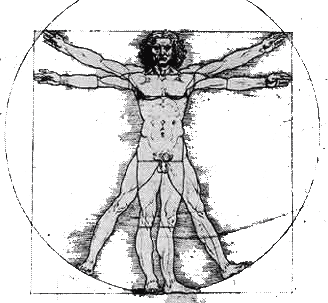Does anyone else remember that dairy movement that wanted americans drinking three cups of milk a day? I do...and although I don't believe milk is inherently bad I think some of us need to reconsider the way we get our milk.
Lets face it, from the way people used to drink it, milk has come a long way. I know that some of you are thinking that this is a good thing. After all without advancements in modern food science we wouldn't have microbial free (pasteurized) homogenized, and fat free milks.
Although at first these innovations to milk appear to be beneficial are they all that great? I along with many other nutritionist and researchers think that these scientific advancements have simply taken a perfect health promoting food and degraded it in order to make a cheap buck. Lets take a look at some of the problems modern dairy faces and why these "advancements" could mean bad news for your health.
I would often bring a bottle of whole milk into class if I had missed breakfast. I would find many of my fellow nutrition majors scowling at me, "You drink whole milk!!!!?????" As if they simply could not fathom that a person who had taken all the coursework they had could consciously drink the fat laden stuff. I would often reply that before whole milk was "whole milk," it was just called milk and people were fine.
I tend to piggyback off the philosophy that eating foods in their least processed form is the ideal way to optimize health and performance. When it comes to milk this philosophy holds true. Many people are wary and believe that the saturated fat and cholesterol in milk will lead to heart disease. I invite those people to read Stephen Guyenet blog post on why saturated fat does not cause a rise in blood cholesterol here.
Secondly I would like to point out that the pasteurization process of milk not only denatures and changes the protein composition in milk, but instigates a rise in harmful substances within the milk called oxysterols
Oxysterols are oxidized forms of cholesterol. In dairy pasteurization (heat exposure) cholesterol oxidation products (COPS) can be formed which indeed have many negative effects on health. Among these detrimental health affects COPS have shown to have cytotoxic, inflammatory, effects and have been linked with chronic diseases including artherosclerosis and neurogenerative diseases.
COPS are thought to be potentially involved in the initiation and progression of artherosclerosis, neurogenerative procecesses, diabetes, kidney failure,
COPS compared to unoxidized cholesterol (like the cholesterol found in raw milk) have demonstrated stronger pathological and toxic effects by at least one or two orders of magnitude ([Poli et al., 2009] and [Van-Reyk et al., 2006]).
One of the primary COPs in milk is called 7-keto cholesterol which is linked to cancer and heart disease. The amount of 7-keto cholesterol formed is directly related to the temperature of pasteurization. This means that if you are going to by store bought milk it may be a wise choice to by milk that is only lightly pasteurized. Ultra-pasteurized milk or the "UHT" you often see on milk labels can contain higher levels as well as milk put in the microwave. So if you eat something like oatmeal and microwave it make sure to put the milk in afterwards or use a milk alternative like almond milk.
These Oxysterols as well as other issues like antibiotic and hormone use, as well as poor animal treatment are a couple of reasons why processed dairy is becoming less and less of a healthy choice. I am fortunate enough to live in a family that gets raw milk, but if that is a little to extreme for you I would suggest buying a lightly pasteurized organic milk.

No comments:
Post a Comment